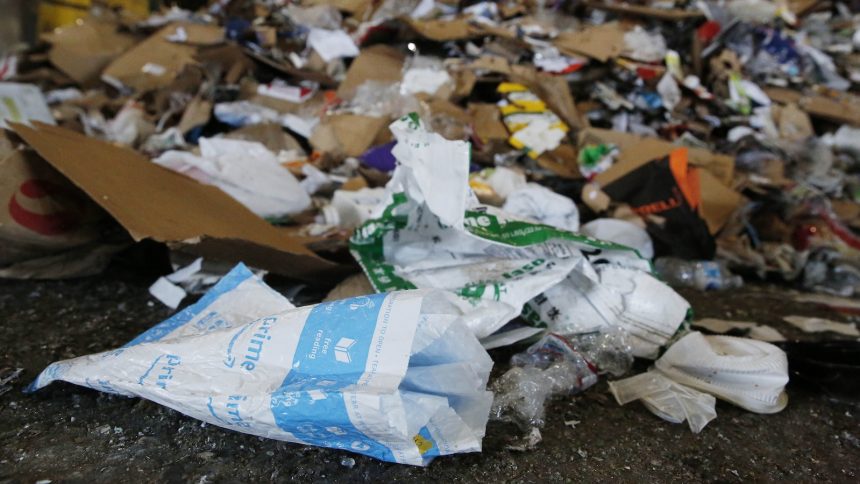In response to mounting pressure to tackle the plastic pollution crisis, Amazon has taken steps to reduce plastic packaging. Last July, the company announced a reduction of 11.6 percent in plastic usage for all shipments globally in 2022 compared to the previous year. This reduction was primarily seen in countries with existing or potential restrictions on specific types of plastic packaging. However, progress in the U.S. has been limited due to the absence of federal regulations on plastic production.
According to a report by the nonprofit Oceana, Amazon generated 208 million pounds of plastic packaging waste in the U.S. in 2022, a 10 percent increase from the previous year. This waste includes Amazon’s signature blue-and-white mailers, pouches, bags, and plastic cushioning. If laid end to end, this waste would encircle the Earth more than 200 times. Dana Miller, Oceana’s director of strategic initiatives, emphasized the urgency for change, calling on Amazon to cease the use of plastic packaging in the U.S.
Oceana estimated Amazon’s U.S. plastic footprint by factoring in market research on plastic consumption by the American e-commerce industry in 2022 and Amazon’s market share of 30.5 percent. Despite Amazon’s efforts to reduce plastic packaging, the estimated 208 million pounds of waste is alarming. The report highlighted the environmental impact of plastic film used in Amazon packaging, which is rarely recycled and often ends up in landfills or the environment, posing risks to marine ecosystems and human health.
While Amazon has made strides in reducing plastic packaging in Europe and India, the company’s efforts in the U.S. have been seen as insufficient. A lack of federal regulations in the U.S. has hindered Amazon’s progress in addressing plastic waste domestically. Despite state-level policies in California aimed at reducing packaging waste, broader action is needed to mitigate plastic pollution effectively.
Amazon’s reliance on plastic packaging has faced criticism from environmental activists and shareholders, who have called for more significant reductions in plastic use. Although Amazon has taken steps to transition to paper packaging and eliminate single-use plastics in some international markets, more immediate action is needed to address the plastic pollution crisis on a global scale. Increased transparency and detailed reporting on plastic waste data are essential for holding Amazon accountable for its environmental impact.






